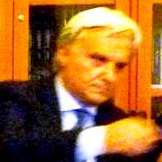Once again, this year, in the baroque town of Martina Franca we were presented with a programme which confirmed that the Festival della Valle d’Itria is a major cultural event at international level for operatic music. Artistic director Alberto Triola offered buffs and critics from all over Europe Saverio Mercadante’s Francesca da Rimini. The opera was composed in Madrid in 1831 but, for reasons yet to be completely explored, it was never staged and the score remained unpublished.
This unknown masterpiece was therefore a world première at this 42th edition of the festival, an ambitious undertaking fully accomplished and one more step towards the complete recovery of the great repertoire produced in the Neapolitan School, which strongly influenced opera in Europe (Mozart’s Le Nozze di Figaro was intended as a sequel to the Giovanni Paisiello’s Barbiere). The work lines up a beautiful score by a preeminent Italian romantic composer, a renowned subject and two characters that are cultural archetypes, Paolo and Francesca, the star-crossed lovers made immortal by Dante in the fifth canto of his Inferno.
Other composers have dealt with the story of Francesca di Rimini and her doomed love affair with her brother-in-law Paolo: Italian verismo composer Riccardo Zandonai wrote a four act opera, a forte for great sopranos like Magda Olivero, Renata Scotto and Eva-Maria Westbroek. Rachmaninov also wrote an opera to a Russian libretto by Modest Ilyich Tchaikovsky, whose more famous brother Piotr composed a Symphonic Fantasy on the same subject.
Mercadante was one of the great Apulian composers who studied and worked in Naples, like Paisiello, Piccinni and Umberto Giordano among others. He consolidated his fame in Vienna, Paris and Madrid, and for the Spanish court he wrote this opera, to a libretto by Felice Romani. The manuscript score is dated 1831 and is preserved in two copies (in Bologna and Madrid); Elizabeth Pasquini was the curator of the critical edition for this staging, based on the Bologna autograph which reveals a particular care for details and presents handwritten annotations of significant value.
But, apart from its historical and philological interest for scholars and experts, Francesca da Rimini revealed itself an opera of great musical value, and the warmth and attention with which it was greeted in Martina Franca shows a public’s willingness to welcome works outside the only well-known masterpieces. Francesca da Rimini was contemporary to Sonnambula and Anna Bolena, but compared to Bellini and Donizetti, Mercadante seems more in debt to the stylistic features of Rossini.
Under the baton of Fabio Luisi, the work was seen to have inspired pages and showed itself to be well worth being part of the repertoire of today's opera houses. The elegant staging was by one of the great masters of the Italian theatre, Pier Luigi Pizzi, who took care of the entire performance project: direction, sets and costumes.
Pizzi conceived a staging as minimalist as possible: with a bare stone wall for backdrop the protagonists moved into a completely empty stage space, shaken by the light and shade of huge black silk drapes, shaken by the wind, reminded Dante's verse "infernal hurricane that never rests", amd changed unrelentingly and unpredictably the cuts of light, highlighted the hatred, the grief, the inner torment of the two lovers.
The cast was centred on the Spanish Leonor Bonilla (Francesca), the Japanese mezzo Aya Wakyzono (Paolo) and the Turkish Mert Süngü (Lanciotto), all of them confronting with challenging vocal roles which they literally created, as the roles had never been sung before.
Bonilla has a lovely voice and a charming stage presence, and drew the psychological fragility of the character with a crystal clear sound (which got rounder when necessary), excellent diction, intense acting, and grace and elegance when she danced.
As Paolo, Francesca’s brother in law and lover, Wakizono showed exquisite colour and full vocal maturity in the difficult role en travesti, whose insidious coloratura and texture she stupendously rendered. Süngü was intense in his execution of Lanciotto, the cheated-on husband and brother; he displayed both the grace of a Rossini tenor and the dramatic flair of a Romantic antagonistic hero. Authoritative and yet a loving father was bass Antonio Di Matteo, whose Guido was impressive for volume and colour.
The appealing choreographies counted on the prestigious name of Gheorghe Iancu. Fabio Luisi is a fine conductor who feel at ease with Romantic bel canto, and exploited each dramatic feature of the tragedy, making the pulse strongly beat in many passages, supported by an Orchestra Internazionale d’Italia as reliable as usual.




